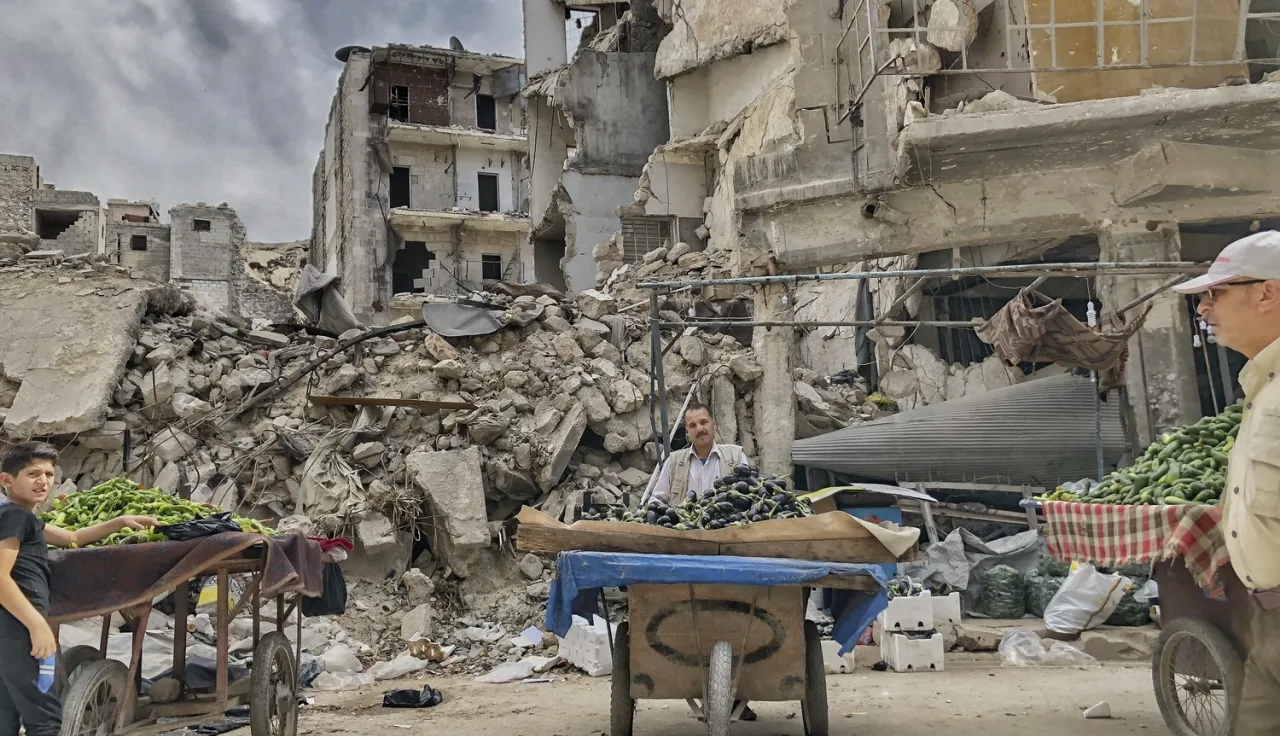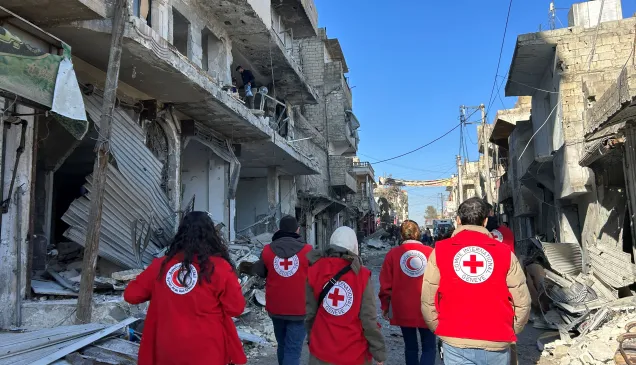Syria is going through a period of transition with immense challenges. The fighting continues in some parts and the danger of increased conflict in places such as Idlib continue. Therefore, efforts must continue to avoid further large-scale confrontations and the suffering that would undoubtedly result.
At the same time, many Syrians are trying to recover from years of conflict.
In terms of humanitarian work, a two-track approach is required.
Firstly, we need to be able to respond to sudden emergency situations.
Secondly, we need to do our best to help people rebuild their lives.
The situation is complex. The challenges vary from place to place, and from time to time. What we are seeing is people in enormous need everywhere.
There are immediate needs and large-scale, urgent responses required:
Take the incredibly difficult situation in north-east Syria at the al-Hol camp close to the border with Iraq and in other camps. Tens of thousands of people, mainly women and children, are in real need.
Some have been through unspeakable horror and have suffered, both physically and mentally. They need safety, shelter, food, health care, sanitation: the basics to live
We, together with the Syrian Arab Red Crescent and others, are providing meals, tents, and medical care, as well as restoring family links and notifying foreign nationals to consular authorities.
The vexed and highly complicated issue of so-called foreign fighters and their families needs also to be addressed urgently. International humanitarian law, with its balanced approach to humanity and security offers indications on the “how”: those concerned must be treated with humanity and dignity, avoiding stigmatization and a further spiral of violence. States cannot shy away from their responsibilities.
All those, close or far, who wish to be repatriated to their country must be able to do so in a safe and dignified manner. This must of course, also include Iraqi nationals. Justice, in respect of basic procedural safeguards, must be able to work, wherever.
And then there are medium-term perspectives, towards which we need to increase our attention today.
While conditions are not ripe yet for large-scale returns, those who make this choice and those who have remained throughout the years and wish to restart their life should be supported.
They need access to basic services, safety and respect for their rights. They need their houses and agricultural land cleared of unexploded ammunition. They need to be able to earn an income. Making basic services available to the population requires often some level of rehabilitation of infrastructure. Water pipes need to be replaced to avoid water trucking for years. Operation theatres need to be restored to save lives.
Today we ask ourselves: how we can help rebuild lives – not countries.
Our priority is to put people at the centre: to bring humanitarian relief where it’s most needed, to make life as bearable as possible. Our criteria for engagement is humanitarian need - physical, psychological and the need of protection from further violence.
As we try to respond, we are still confronted with too many limits on access and secure working environments, too many violations of IHL and too much instrumentalisation of humanitarian action. Syrians have seen too much of that.
The whole fabric of society needs to be repaired and Syrians will need to reconcile to prevent future conflict. This will be possible only if the rights of all are upheld: detainees, returning IDPs or refugees, all Syrians. Searching for missing persons and responding to the needs of their families, too, will be crucial and urgent.
Dear colleagues, conflict and violence have shattered the lives of so many people in Syria. The violence is not over. But we now need to look to the future, and to the changing landscape we see on the ground.
The Red Cross / Red Crescent Movement and many others will continue to play its part as we have done during the entire conflict. Your unwavering support for neutral and impartial humanitarian work is more critical than ever.
There is a new generation growing up. The type of country they are going to inherit will depend, largely, on how we all respond now.




